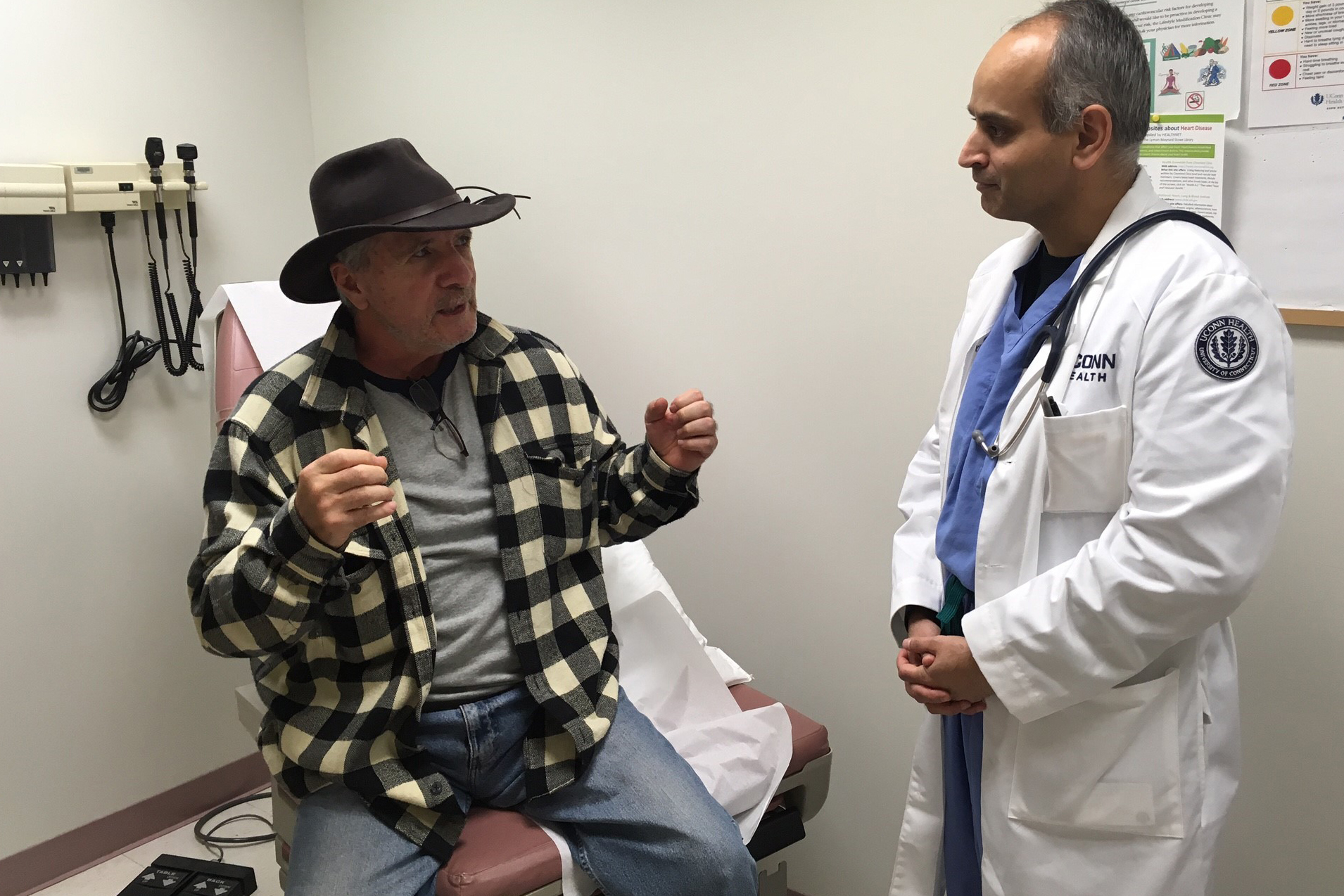Frank Cammarata, 73, is a bodybuilder who regularly would be able to bench press 300 pounds, and do 78 pushups and 20 pull-ups.
But last winter he started to experience sudden bouts of shortness of breath. He was unusually tired and dizzy at times, and his vision was blurred when he was at the gym and doing his usual daily activities. He also found that he had to take a rest shortly after starting to shovel snow last winter, and says he felt as if he was about to pass out from going up even a short flight of stairs.
“I thought it might just be my age catching up with me, or perhaps that it could be my heart,” says Cammarata of Meriden, Conn.
He visited several doctors for check-ups about his persisting symptoms, including several cardiologists, but they all gave him a clean bill of health.

Cammarata recalls that he was often nicknamed “Dr. Google” by his various physicians, based on the extensive online research he would do before his doctor appointments in the hunt for answers to his unexplained symptoms. Even a trip to his local Emergency Room, advanced blood tests, electrocardiograms, echocardiograms, and other tests turned up nothing unusual.
But his family medicine physician, Dr. Alex Faustin, a graduate of UConn School of Medicine, recommended that Cammarata further pursue his symptoms at Connecticut’s academic medical center, UConn Health. So Cammarata called UConn Health, asking for “a heart doctor with a lot of experience.”
He was connected with interventional cardiologist Dr. Aseem Vashist, associate professor of medicine at the Calhoun Cardiology Center at UConn Health.
“Dr. Vashist was the first heart doctor that truly listened to me fully,” said Cammarata. “Despite all previous heart tests being negative, Dr. Vashist told me he was going to take my reported heart symptoms very seriously.”

To confirm whether Cammarata had any hidden heart blockages that could be causing his symptoms, Vashist performed a minimally invasive radial access heart angiogram through the artery in his wrist at UConn Health’s Cardiac Catheterization Laboratory.
The angiogram revealed that Cammarata did indeed have significant atherosclerosis, including a 90 percent complex blockage involving the bifurcation branch of a major heart artery, putting him at risk for a heart attack at any time.
Due to the complex location of the heart blockage, Vashist said he was most likely a candidate for open-heart surgery known as coronary-artery bypass surgery.
But Cammarata asked, “Is there a Plan B?” Complications or a long recovery period were possibilities he wanted to avoid. He wanted to be able to continue taking care of his wife Nancy, who has advanced adrenal cancer.
So Vashist and his team placed two cardiac stents via the wrist to prop open Cammarata’s blocked heart artery, helping him avoid invasive bypass surgery.
“Dr. Vashist really listened to me and to my ongoing symptoms,” says Cammarata. “His suspicions about a possible heart blockage were spot on.
“Finding a doctor who listens and has experience is really important,” he adds. “I am very happy that Dr. Vashist was a thoughtful listener and proactively saved my life.”
A follow-up stress test has confirmed that Cammarata now has normal heart function.
“His story embodies the advanced and compassionate care we provide here at UConn Health,” says Vashist.
Cammarata says he hopes that speaking about his case can help others. “I hope my experience might motivate someone to pursue persistent symptoms despite tests that may indicate nothing seems wrong,” he says. “My story is good lesson to everyone. Always listen to your body. You know it best, so stick with your instincts.”
To learn more about the Pat and Jim Calhoun Cardiology Center at UConn Health visit, health.uconn.edu/cardiology.



